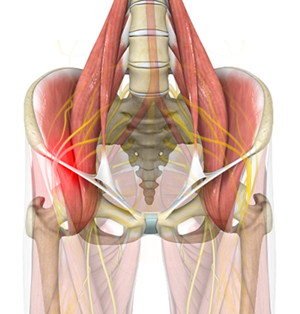
What is Meralgia Paresthetica?
Meralgia paresthetica, also known as Bernhardt-Roth syndrome is a neurological condition characterized by pain and numbness in the thigh.
Causes of Meralgia Paresthetica
Meralgia paresthetica is caused when the lateral femoral cutaneous nerve (LFCN) that supplies sensation to the outer part of the thigh is damaged or compressed. Some of the factors that result in the compression include:
- Wearing tight-fitting clothes
- Pregnancy
- Neurological disorder
- Obesity
- Diabetes
- Injury from motor vehicle accident
- Standing or walking for long durations
- Hip injury
Symptoms of Meralgia Paresthetica
Symptoms of meralgia paresthetica include:
- Shooting pain in the thigh
- Difficulty walking or standing for long durations
- Sensitivity to touch
- Pain in the groin area that radiates to the buttocks
- Tingling sensation
- Loss of sensation
Diagnosis of Meralgia Paresthetica
Your doctor will review your medical history and symptoms, and based on this a physical examination will be performed that includes a pelvic compression test where your doctor will look for pain by applying pressure at different points in your thigh. Diagnostic tests can include the following:
- CT scan: Special x-rays are used to produce clear images of any damage present in the internal hard and soft tissue structures of the body.
- Electromyography: Special electrodes are used to record the electrical activity and detect any damage to the muscles or nerves.
- MRI scan: An imaging study that uses large magnetic fields and radio waves to detect any damage to the soft tissues.
- X-rays: During this study high electromagnetic energy beams are used to produce images of the hip and pelvic area.
- Nerve blocks: A nerve block is an injection of anesthetic and steroid medication around the spinal nerve root to determine the source of pain.
Treatment for Meralgia Paresthetica
The main goal of treatment is to relieve the compression on the lateral femoral cutaneous nerve. Conservative treatments for meralgia paresthetica include:
- Medications: Your doctor may prescribe certain non-steroidal anti-inflammatory or anti-seizure medications to relieve pain.
- Physical therapy: Your doctor will recommend exercises to reduce body weight and strengthen muscles.
- You will be advised to wear loose-fitting clothes.
- Transcutaneous electrical nerve stimulation (TENS): During this procedure, small electrodes are placed on the skin to stimulate the nerves near the affected area.
If conservative measures are found to be ineffective, surgery will be recommended and can include:
- Neurectomy: The compressed part of the nerve is removed surgically.
- Neurolysis: Chemical agents are injected into the nerve fibers to destroy the damaged nerves and relieve pain.
